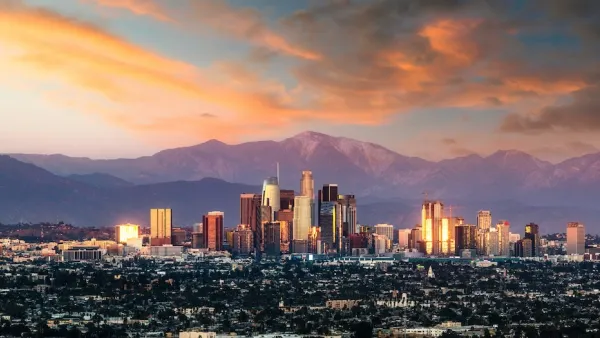Despite the extreme weather events of the past year, most Americans are still not persuaded that climate change is primarily the result of human activity. Why not?
Despite the extreme weather events of the past year, most Americans are still not persuaded that climate change is primarily the result of human activity. Why not?
In large part, the problem is beyond environmentalists' control, for at least two reasons. First, public concern over the troubled economy has crowded out public interest in more long-run problems (including, but not limited to, climate change). Second, a large fraction of voters get their information from the right-wing media, which distinguishes itself from the competition by attacking President Obama. So if President Obama supports doing something about climate change, Fox News and right-wing AM radio are tempted to deny that climate change even exists.
But after having been on numerous environmentalist mailing lists, listservs, etc. I have come to believe that environmentalist rhetoric is sometimes unhelpful. Just as Tea Party extremism makes Republicans look bad to swing voters, much of what I've read in the environmentalist media might be off-putting outside the environmentalist base.
On one extreme, environmentalists sometimes use overheated rhetoric (pun intended). Environmentalist rhetoric about "saving the Earth" may fire up the already-persuaded, but may sound wacky to the unconvinced - and disconcerting to religious voters whose traditions tell them that God will ultimately supply a Messiah, or at least not wipe out life on Earth (Gen. 8:21). Moreover, I don't think you need to tell people that all of humanity will be destroyed in order to give them reason to worry. For example, climate change could cause a flood of natural disasters (pun intended) which wipes out large stretches of American coastline, eliminates a big chunk of our food supply, and brings the U.S. economy to its knees. Such disasters are perfectly consistent with anyone's religious tradition, yet sufficiently harmful to be worth taking aggressive measures to avoid.
At the other extreme, environmentalists sometimes focus on trivia, going on the warpath against one consumer product or another - sometimes products as trivial as plastic straws, or as important as air conditioning. These "Austerity Green" crusades do give the environmentalist base a way to feel useful, but aren't likely to materially affect climate change. More importantly, Austerity Green tells swing voters: environmentalism means making your life more difficult and uncomfortable, with no obvious payoff. A reader subjected to such views may be converted, but may also deny the existence of any climate change problem at all in order to avoid feeling guilty about not following the Austerity Green agenda. (Of course, I'm assuming that the unconverted actually read this stuff- perhaps a fanciful assumption!)
By contrast, conservatism is successful precisely when its promises of austerity are vague (e.g. unspecified cuts in wasteful spending, which voters are likely to think will affect someone other than themselves).
But you may argue: doing something about climate change is likely to involve some policies that might make something more expensive to someone, whether it be subsidies to clean energy (some of which will inevitably turn out badly), regulations to limit pollution (which may increase energy prices in the short run) or carbon taxes. And so perhaps even the best-sold environmental policies might be a hard sell in today's political climate. Nevertheless I do wonder if environmentalist rhetoric makes these policies an even harder sell than necessary.

Analysis: Cybertruck Fatality Rate Far Exceeds That of Ford Pinto
The Tesla Cybertruck was recalled seven times last year.

National Parks Layoffs Will Cause Communities to Lose Billions
Thousands of essential park workers were laid off this week, just before the busy spring break season.

Retro-silient?: America’s First “Eco-burb,” The Woodlands Turns 50
A master-planned community north of Houston offers lessons on green infrastructure and resilient design, but falls short of its founder’s lofty affordability and walkability goals.

Test News Post 1
This is a summary

Analysis: Cybertruck Fatality Rate Far Exceeds That of Ford Pinto
The Tesla Cybertruck was recalled seven times last year.

Test News Headline 46
Test for the image on the front page.
Urban Design for Planners 1: Software Tools
This six-course series explores essential urban design concepts using open source software and equips planners with the tools they need to participate fully in the urban design process.
Planning for Universal Design
Learn the tools for implementing Universal Design in planning regulations.
EMC Planning Group, Inc.
Planetizen
Planetizen
Mpact (formerly Rail~Volution)
Great Falls Development Authority, Inc.
HUDs Office of Policy Development and Research
NYU Wagner Graduate School of Public Service





























